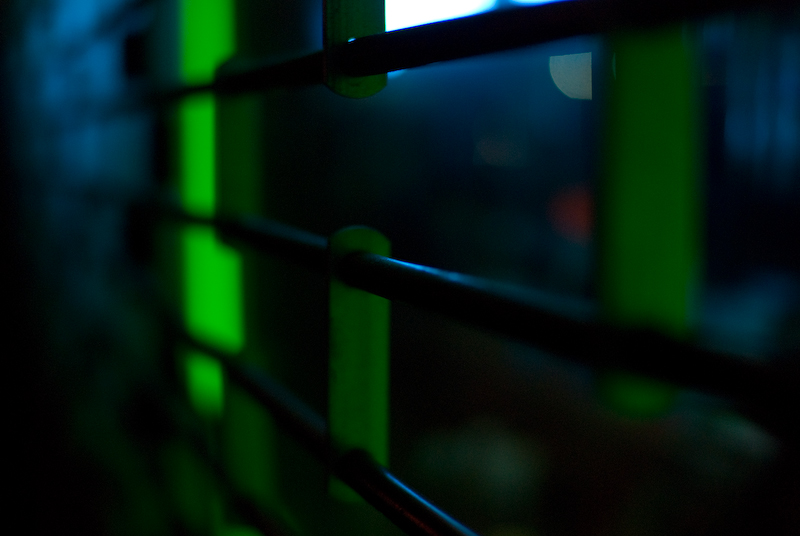|
|
LITR
5831 World / Multicultural Literature: |
|
The Word “Rain”: Jewish Sentiment in America under Hitler’s Third Reich
A recent daytrip to the Houston Holocaust Museum shed light on the
existence of Jewish immigrants to the Houston area during Hitler’s rule in Nazi
Germany. There were at least three families on display at the very beginning of
the tour and their letters, postcards, and passports could be seen at intervals
on the way through. Having prior interest in the time-period of Germany under
Hitler and his Third Reich and the implications it had in America, I bought a
book from the museum to see if I could find more specifically what I was looking
for. I bought a book titled, In the
Garden of Beasts by Erik Larson. It was exactly what I had been looking
for—an American’s experience in Berlin, Germany, under the Hitler regime and his
firsthand account of what the country looked like from the inside and what
American Jews were going through across the Atlantic.
The work is non-fiction but mostly reads like a piece of fiction with the
dialogue and extreme attention to detailing the sights, sounds, and odors of
1933 Berlin—-the year Adolf Hitler was elected to chancellor. The Dodd family
hailed from Chicago before William Dodd was asked by President Roosevelt to take
his wife, daughter, and son to Berlin to act on behalf of the United States
government as the U.S. ambassador there. He and his family would spend the next
four and half years in Berlin, witnessing firsthand some of the most horrific
and cruel acts Hitler and his regime would enact upon the Jewish population,
Jewish allies, and suspected allies. His daughter, Martha, initially felt the
pull towards the Nazi charms but would learn within their first year in Berlin
just how cruel the men and women of the National Socialist party could be.
After witnessing a young Jewish woman getting dragged down the street by
a rope with her head recently shaved by Hitler’s Storm Troopers after being
caught for dating an Aryan man, Martha started to change her mind and see the
horrific injustice that was being legally carried out every day around her and
her family. Her father was slower to catch on to the downright political
oppression of a whole people right under his nose but also came around within
his first year in office. In a letter from his American friend, a Professor
Olden, written to Ambassador Dodd about his brother-in-law who resided in Berlin
at the time, they talked about how Olden’s brother-in-law was forced to
correspond back and forth with Olden using rudimentary codes—“an increasingly
common practice throughout Germany”—to explain that if he ever used the
word “rain” in further correspondence, to know that it would now mean that “he
had been placed in a concentration camp,” and the word “snow” would mean that he
was being tortured (Larson, pp. 226). Their phones were constantly being tapped
and “confidential” reports were being read before they even left Germany on
their way to President Roosevelt. A formerly charming Hitler was beginning to
show his true colors even to Dodd, who would eventually see him as only
“half-informed about great historical events and men in Germany,” and that “his
influence [Hitler’s] is and has been wholly belligerent” (Larson, pp.237).
Giving Germany’s entire issue a name, Hitler called it the “Jewish
problem” and blamed any and every bad thing that had, could, and would happen in
German history on the Jews and those who supported them. He also blamed them for
“whatever bad feeling had arisen in America toward Germany,” followed by an
enraged, “Damn the Jews” (Larson, pp. 235). Keeping his finally uncovered
attitude and demeanor in mind, Dodd would go on to watch Hitler initiate Martial
Law on the German people, killing any and all he saw as a threat to his vision
for Nazi Germany, including diplomats (both German and foreign), his own trusted
friends, his own god-children’s father, and many of his brown-shirted SA Storm
Troopers. Hitler’s purge on Saturday, June 30, 1934, became known as “The Night
of the Long Knives” and would lead many people, Jews and Aryans alike, to
quickly divide into two groups—“those who believed it was immoral to remain in
Germany and those who felt the best strategy was to stay put, recede as much as
possible from the world, and wait for the collapse of the Hitler regime.” This
latter approach became known as “inner emigration,” and was the path chosen by a
Jewish writer named Rudolf Ditzen, known more commonly by his pseudonym, Hans
Fallada.
People were immigrating to the United States as much as possible under
the U.S. Immigration Department’s increasingly stringent allowances, American
Jews were protesting in the streets, feeling further like a minority group under
the divisions created by Nazi propaganda spread throughout the U.S. and Germans
were emigrating within their own country into the dark shadows of their own
lives to escape the same fates of their friends and neighbors. Political
injustice and oppression would set Germany in flames and Hitler’s tyranny would
later spur the onset of World War II.
The Houston Holocaust Museum serves as a reminder of the events that
happened not only in Germany and the surrounding countries dominated by Hitler’s
rule but also of those lives affected here in America and of those who would try
to immigrate here and often fail. The mindset of the Jews as a minority is not
really a current one anymore but at one time they felt like the minority and I
can understand a lot more clearly and with much more disgust how those feelings
were created.
Works
Cited
Larson, Erik. In the Garden of Beasts: Love, Terror, and an American Family
in Hitler's Berlin. New York: Crown, 2011. Print.
Houston Holocaust Museum
Ritchie, J.M. German Literature Under
National Socialism. Totowa, N.J.:Barnes and Noble, 1983.
U.S.
Department of State. Peace and War:
United States Foreign Policy, 1931-1941. Washington, D.C.:U.S. Government
Printing Office, 1943.
White, Craig. "Coursesite for Craig White, Literature & Humanities, UHCL." Coursesite for Craig White, Literature & Humanities, UHCL. N.p., n.d. Web. 11 July 2016. <http://coursesite.uhcl.edu/HSH/Whitec/>.



